
Physiology & Endocrinology for IBCLCs - 5 CERPs - Pack 1
If you're seeking to broaden your understanding in II. Physiology and Endocrinology, according to the IBCLC Detailed Content Outline, and your personalized Professional Development Plan (PPDP) has identified a need for further education in this area, our 5-hour comprehensive lecture package is an excellent option.
Our package covers the education requirements for the II. Physiology and Endocrinology category and features expert speakers, who provide an informative and engaging learning experience. Through this package, you will have the opportunity to deepen your understanding and enhance your expertise in this field.
To ensure the best learning experience, please confirm you haven't already taken any of these lectures at the time of purchase. However, if you encounter any issues after purchase, simply reach out to [email protected], and we'll work to find a suitable replacement for you.
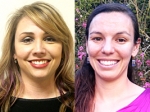

Amber Valentine is a Speech-Language Pathologist who graduated from the University of Kentucky with her MS in Communication Disorders. She is a Board Certified Specialist in Swallowing and Swallowing Disorders and an International Board Certified Lactation Consultant. She worked for Baptist Health Systems, Inc for 8 years before moving to Florida where she worked for Wolfsons Children’s Hospital and Mayo Florida. She is now back in Kentucky working for Baptist Health Lexington. She has experience in adults and pediatrics with feeding and swallowing difficulties including: bedside swallow evaluations, Modified Barium Swallow studies, FEES, and pediatric feeding evaluations including NICU. She has provided guest lectures for the University of Kentucky and the University of Louisville on feeding and swallowing topics. She has presented at the hospital level, local, state, national, and international levels on pediatric feeding/swallowing and breastfeeding.
Lillian Scott is a speech-language pathologist and certified lactation counselor employed by Baptist Health Lexington in Lexington, Kentucky. She received master’s degree in Speech-Language Pathology from Gallaudet University. She received dual bachelor degrees in Communication Sciences and Disorders and Special Education from the University of Kentucky. She has worked with pediatrics and adults in the areas of speech, language, and swallowing. She has NICU, Mother/baby, and outpatient clinical experience working with feeding dyads of breast and bottle feeding infants. In the area of adults and pediatrics, she has experience with clinical swallowing evaluations and Modified Barium Swallow Studies. She has experience with adult Fiberoptic Endoscopic Evaluations of swallowing (FEES). Her interest is in successful feeding by mouth for infants with complex medical histories and promoting breastfeeding in cultures that are not likely to receive the supports for feeding difficulties due to knowledge, costs, and/or access.
Objective 1: The participant will identify at least three populations at risk for feeding difficulty;
Objective 2: The participant will be able to explain at least two commonly seen characteristics in each of these populations that may adversely impact feeding;
Objective 3: The participant will be able to list at least two strategies for each of the populations to enhance feeding success at the breast.
Feeding is the most complex task of infancy, even in term babies with no complications. There are many diagnoses, conditions, syndromes, and co-morbidities that can impact feeding in neonates and infants. This talk will briefly highlight many of those, but we will focus on three specific populations of interest –Neonatal Abstinence Syndrome, Infants of Diabetic Mothers, and Downs Syndrome. We will discuss the specific implications these conditions can have on feeding, why these infants may have difficulty, and the classic symptoms one could expect to see. The differences between delayed and disordered feeding will also be addressed. Strategies and adaptions for breast feeding will be discussed. Positioning and external strategies will be explained. Case studies will be shared at the end of the presentation.
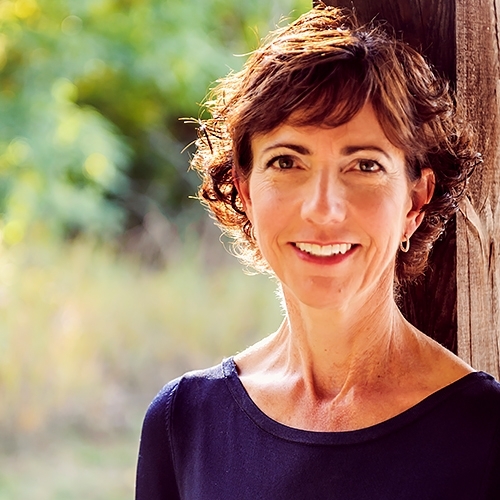

Dr. Sharon Unger comes from the East Coast of Canada and is a neonatologist at Sinai Health System in Toronto, Canada. She is a co-primary investigator for the Canadian Institutes of Health Research funded OptiMoM and MaxiMoM programs of research as well as the medical director for the Rogers Hixon Ontario Human Milk Bank. Her research interests are primarily in the use of human milk for the high risk neonate and its long term impact.
Delegates will be able to:
1: Discuss the differences between mother's milk and human donor milk
2. Discuss the scientific evidence behind current human donor milk usage guidelines
3. Discuss some of the ethical considerations in human donor milk use
Mother’s milk is the unequalled nutritional source for the preterm or medically fragile neonate. Beyond its nutritional impact, it contains a myriad of bioactive molecules that are of particular health importance for the sick neonate. A majority of mothers who are pump dependent with an infant in a neonatal intensive care unit have an incomplete supply of their own milk. In this instance, human donor milk is an important supplement to have available while the mother is supported to increase her own milk supply. This lecture will focus on various aspects of the use of human donor milk including a review of the differences between mother’s milk and donor milk and the current methodologies used for processing donor milk. Recommended clinical guidelines will be discussed that are based on the evidence for short and long term health outcomes following the use of donor milk in the neonatal period. Future considerations will be explored including ethical issues with respect to donor milk use.
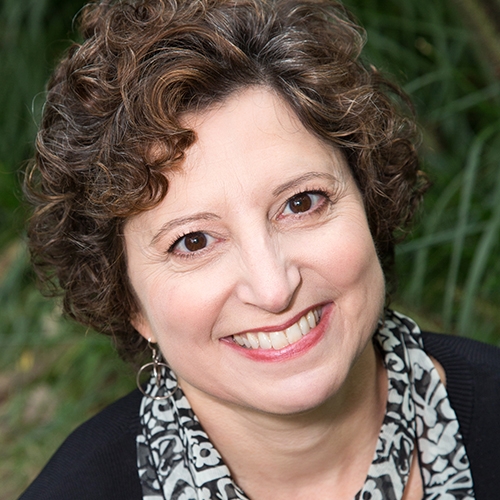

Alyssa has been helping parents and babies with breastfeeding since 2002, first as a La Leche League Leader and since 2009 as an International Board Certified Lactation Consultant.
Alyssa works in private practice serving clients worldwide, primarily through telehealth. She is the author of Breastfeeding Without Birthing: A Breastfeeding Guide for Mothers Through Adoption, Surrogacy, and Other Special Circumstances and a professional supplement to the book, The Breastfeeding Without Birthing Professional Pack online training.
Alyssa has authored articles for The Journal of Human Lactation: The Three Step Framework for Inducing Lactation and Successful Co-Lactation by a Queer Couple: A Case Study. She has also authored articles for La Leche League’s Leader Today and Breastfeeding Today magazines, and Adoptive Families magazine. She is an international speaker on the topics of inducing lactation, relactation, and other related topics. Alyssa is the proud mother of three breastfed children, two by birth and one by adoption. She lives in St. Louis, Missouri, USA.
Topic: Demystifying Inducing Lactation: How Lactation Happens Without Pregnancy and Birth - [View Abstract]
Topic: ReLATCHtation: Transitioning the Exclusively Bottle-fed Baby to Nursing - [View Abstract]
Topic: Supplementation: A Goldilocks Dilemma - [View Abstract]
Topic: The Proficient Pumper - [View Abstract]
Objective 1: The learner will be able to describe the circumstances when a parent might be transitioning from bottle to breast/chest
Objective 2: The learner will be able to identify challenges transitioning from bottle to breast/chest.
Objective 3: The learner will be able to discussing successful nursing.
Objective 4: The learner will be able to use the Building Blocks to Nursing.
Newborn babies are hardwired for breastfeeding: their newborn instincts direct them to latching at the breast/chest. But what about older babies who are currently exclusively bottle-feeding – can they learn to nurse too? A birthing parent may wish to initiate or resume breastfeeding after choosing not to breastfeed or discontinuing breastfeeding. An adoptive or foster parent may be placed with an older baby or toddler whom they wish to nurse. With patience, persistence, support, and some tools and tricks, it can be possible. This presentation discusses how to know if baby is ready to breastfeed, setting the stage for success, and the process of gentle transitioning from bottle to breast/chest.
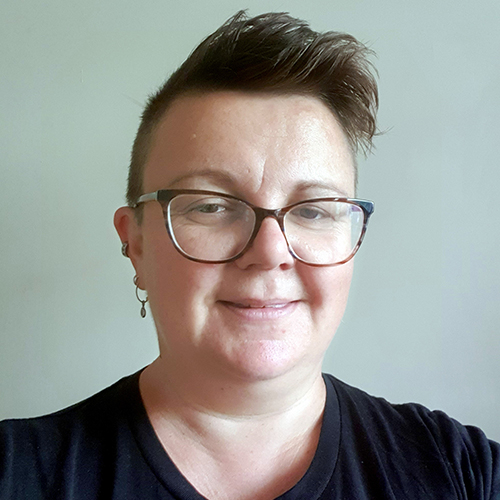

Kathryn Stagg is mum to 4 boys, twins and 2 subsequent singletons. She trained as a breastfeeding peer supporter and volunteered in the groups for years in and around Harrow, NW London, UK.
Kathryn caught the breastfeeding support bug and decided to further her knowledge training as a Breastfeeding Counsellor with the Association of Breastfeeding Mothers and then qualifying as an IBCLC 5 years ago.
Kathryn started Breastfeeding Twins and Triplets Facebook group almost 8 years ago and it now has over 9000 members. It has recently been made into a UK charity. Kathryn is passionate about delivering high quality breastfeeding support to as many twin and triplet families as possible, creating resources and educating health care professionals and breastfeeding supporters. She runs a small private practice and continues to teach music part time, her original career path. Kathryn is the author of Breastfeeding Twins and Triplets; a guide for professionals and parents.
/p>
Topic: Don't Let Us Fool You: Breastfeeding in Late Preterm and Early Term Babies - [View Abstract]
Objective 1: List key ways to help families prepare for premature birth, including establishing breastfeeding multiples.
Objective 2: Describe components of unique care specific to the Late Preterm and Early Term birth in establishing breastfeeding multiples.
Objective 3: Discuss how lactation support professionals to support multiple birth families during the different stages of their breastfeeding journey
This session will help you understand the challenges of a multiple pregnancy and birth. Discover preparations that can help ease stress and increase success in lactation. Learn how to support families experiencing premature birth. You will understand the best way to help parents establish breastfeeding their multiples, even with late preterm/early term birth. This session will help attendees gain and understanding of how to navigate the challenges of breastfeeding multiples and how to support families effectively during the different stages of their breastfeeding journeys.
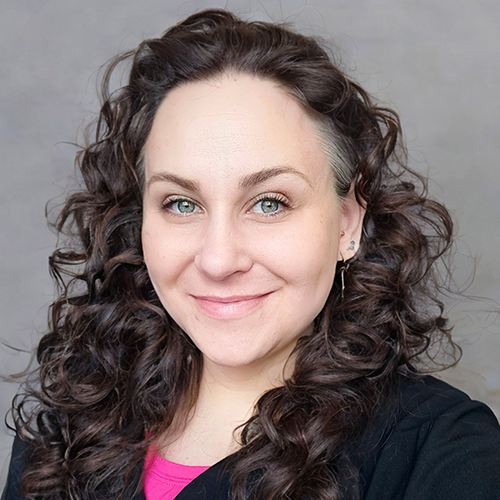

Megan Dunn is an experienced Lactation Consultant, infant feeding specialist, and Health Educator with nearly two decades of experience providing comprehensive lactation education and clinical care. With a Bachelor of Science in Anthropology and Sociology and a minor in Communication, Megan offers holistic, evidence-based care and develops innovative care plans in a Trauma-Informed environment. Megan is an award-winning breastfeeding advocate, currently serving as the President of the Oregon Washington Lactation Association, and has successfully implemented and developed clinical lactation services and Medicaid billing for Public Health lactation care.
Topic: Navigating PCOS During Lactation: Solution Focused Strategies and Equity in Care - [View Abstract]
1. List the functions a healthy microbiome regulates.
2. Describe symptoms of microbiome imbalance.
3. Describe how to create and communicate an appropriate care plan for your patient/client according to your scope of practice.
The billions of unicellular organisms which form a symbiotic relationship with our bodies provide essential functions which regulate, modulate, and maintain homeostasis. The microbiome has an essential role in prompting a proper immune response, maintaining adequate digestion and metabolic function, managing inflammatory status, supporting mental health, and many more functions which are required for good health. Dysbiotic conditions during the perinatal period are common and impact the infant feeding relationship.
In this presentation, participants will learn about the functions of the microbiome as it relates to lactation and infant health as well as the consequences of dysbiosis and its impact on lactation/infant feeding.
Additionally, participants will learn how to address dysbiotic conditions within their profession’s scope. This presentation provides clinically applicable information and recommendations that participants can apply when providing lactation education and developing care plans.
Accreditation
CERPs - Continuing Education Recognition Points
Applicable to IBCLC Lactation Consultants, Certified Lactation Consultants (CLCs), CBEs, CLE, Doulas & Birth Educators. GOLD Conferences has been designated as a Long Term Provider of CERPs by IBLCE--Approval #CLT114-07.
This program is approved for 5 L-CERPs.
If you have already participated in any of these presentations, you are not eligible to receive additional credits for viewing it again. Please email [email protected] if you have any questions.
Additional Details:
Viewing time: 6 Weeks
Tags / Categories
(IBCLC) Infant, (IBCLC) Infant, (IBCLC) Maternal, (IBCLC) Pathology, (IBCLC) Physiology and Endocrinology, (IBCLC) Psychology, Sociology, and Anthropology, (IBCLC) Techniques, Breastfeeding Complications, Breastfeeding Multiples, Donor Human Milk for Preterm Infants, Induced Lactation & Relactation, Neonatal Abstinence Syndrome, The Newborn Microbiome
How much time do I have to view the presentations?
- The viewing time will be specified for each product. When you purchase multiple items in your cart, the viewing time becomes CUMULATIVE. Ex. Lecture 1= 2 weeks and Lecture Pack 2 = 4 Weeks, you will have a total of 6 weeks viewing time for ALL the presentations made in that purchase.
- Time for viewing the talks begins once you purchase the product. For Live Webinars & Symposiums, the viewing period begins from when the live event takes place. Presentations can be accessed 24/7 and can be viewed as many times as you like during the viewing period.
What are bundled lectures?
- Presentations may be available individually or via a bundled package. Bundled lectures are a set of lectures that have been put together based on a specific category or topic. Some lectures will be available in both individual and lecture form, whereas others will be available only via a bundled lecture pack.
Will there be Handouts?
- YES! Each lecture comes with a PDF handout provided by the Speaker.
Some lectures include a Q&A, what does that mean?
- During our online conferences, presentations that occur live are also followed by a short 15 minute Question & Answer Session. The Speaker addresses questions that were posted by Delegates during the presentation. We include the recording of these Q&A Sessions as a bonus for you.
How can I receive a Certificate?
- If this presentation offers a certificate, once you are done viewing the lecture or the lectures within a bundle, submit your attendance record in order to be able to download your certificate. You'll be able to see which credits are offered for the lecture by hovering over the "Credits Available" link within the "Speakers & Topics" tab.
Professionals that selected this package also viewed

|
|

|










